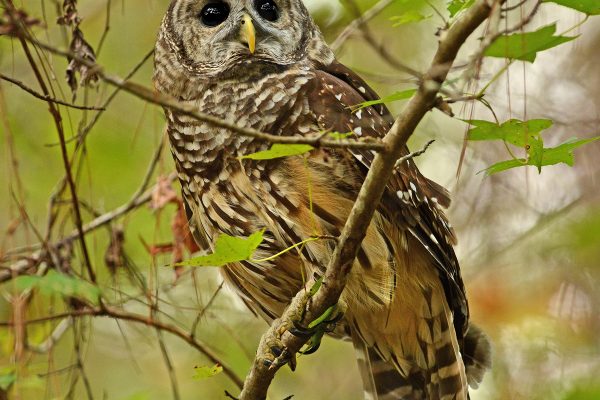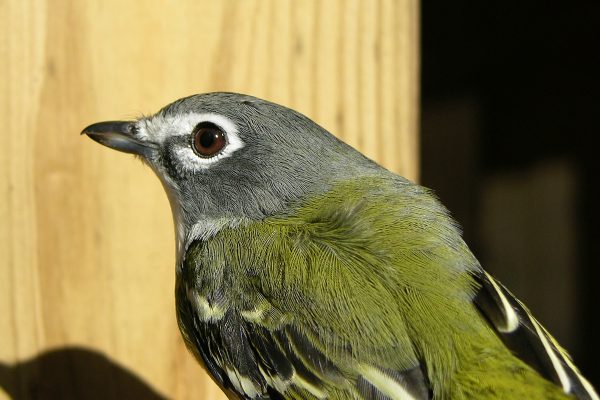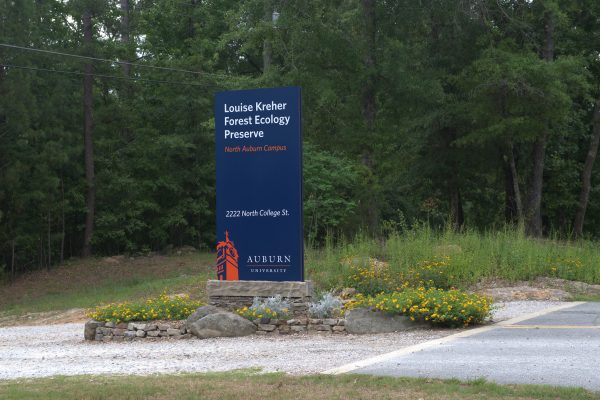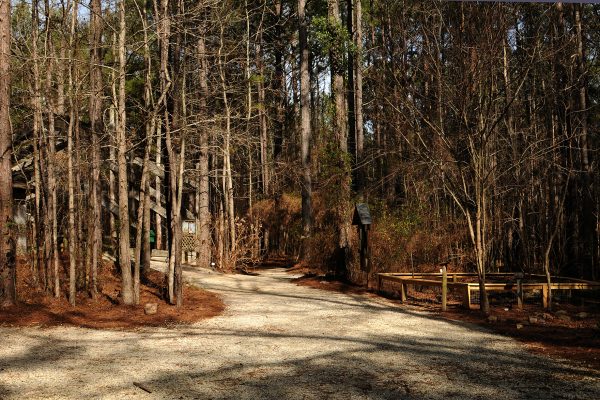The Alabama Birding Trails has announced that Auburn University’s Louise Kreher Forest Ecology Preserve, informally known as the Kreher Preserve and Nature Center, will be designated as an Alabama Birding Trail location as part of the regional Piedmont Valley Birding Trail.
The 120-acre preserve, located just north of Auburn, features five miles of well-marked trails which traverse seven natural bird habitats including pine, oak/hickory, bottomland hardwood and mixed pine/hardwood. As part of the Saugahatchee Creek Watershed, visitors will also find a stream, small waterfall, pond and wetland areas.
Approximately 80 different bird species can be found on the property throughout the year, including the belted kingfisher, Mississippi kite and indigo bunting. The preserve habitat hosts migratory birds in the spring such as warblers, vireos, tanagers and orioles. Fall and wintering birds such as nuthatches, kinglets and woodpeckers are frequently observed.
Visitors to the Kreher Preserve are also able to observe various species of raptors including hawks, owls and vultures. Nesting bald eagles are present on nearby properties and are frequently observed flying into and over the preserve.
“The Kreher Preserve and Nature Center is enjoyed by the university community as well as thousands of locals and visitors every year,” said Janaki Alavalapati, dean of the Auburn University School of Forestry and Wildlife Sciences. “We hope that by adding it to the Alabama Birding Trail even more families will be exposed to the opportunity to enjoy this unique discovery center with its miles of beautiful trails, natural habitats and educational programs.”
Preliminary findings from the U.S. Fish and Wildlife Service’s 2016 National Survey of Fishing, Hunting and Wildlife-Associated Recreation estimates that in 2016, more than 101 million Americans—nearly 40 percent of the U.S. population—participates in some form of fishing, hunting or other wildlife-associated recreation such as birdwatching or outdoor photography.
“The economic impact of outdoor and wildlife-related recreation is a boom for the U.S. economy representing nearly 1 percent of the gross domestic product,” said John Wild, president of the Auburn Opelika Tourism Bureau.
“With the addition of the Kreher Preserve and the Lee County Fishing Lake to the growing list of birding sites in Lee County, including the Wood Duck Preserve and Chewacla State Park, we anticipate the new designations will draw more people to the Auburn/Opelika area who will also visit our hotels, enjoy meals in restaurants and make retail purchases while they are here.”
The Kreher Preserve and Nature Center is located at 2222 North College Street in Auburn. It is open to the public every day from sunrise to sunset and features amenities such as a picnic area, restrooms, drinking fountains, boardwalks and two improved parking areas.
The preserve was established in 1993 with a gift of land from Louise Kreher Turner and Frank Allen Turner to Auburn University and is operated by the School of Forestry and Wildlife Sciences as a not-for-profit outreach program.
The Alabama Birding Trails is a partnership of the Alabama Department of Conservation and Natural Resources, the University of Alabama Center for Economic Development and the Birmingham Audubon Society. It highlights many of the birds found in Alabama and encourages economic development through a tourism-based model.
More information about the Kreher Preserve and Nature Center can be found online. More information about Alabama Birding Trails can be found online.













